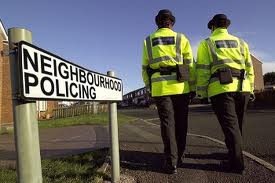This is the first in a series of posts on the seminal Policing for a Better Britain report.
A social justice model of neighbourhood policing
One of the distinguishing features of Policing for a Better Britain is the report’s emphasis that the role of the police is much more than crime fighting. The report argues that policing has suffered from being a political football with policy emphasis swinging between crime control and service. The report’s authors, the Independent Policing Commission, sets out its view that the mission of the police should be to:
- Encompass both crime prevention and the detection of crime;
- Encourage proactive engagement while retaining reactive emergency responding capabilities;
- Contribute to community cohesion while maintaining order; and
- Provide a local focus while safeguarding national security.
Enshrining the police’s social purpose in law
The Commission recommends that the social purpose of the police should be enshrined in law to cement a long term approach to policing and clarify exactly what we expect the police to do.
The report praises the Scottish example which accompanied the creation of a single national police service with a legal statement of purpose. Neighbourhood policing is seen as the key building block of fair and effective policing. The Commission says: [mks_boxquote align=”left” width=”610″ arrow=”0″]We need a police service that listens closely to the demands of the whole community while focusing resources where evidence suggests they are most needed and can do most good[/mks_boxquote]
The commission goes on to recommend that legislation should be backed up by a set of minimum standards for local policing . [mks_separator style=”double” height=”2″]
Minimum Standards
The commission goes on to suggest an initial set of minimum standards to which all citizens should be entitled and against which local police services would be monitored.
- A guaranteed minimum level of neighbourhood policing;
- Emergency response or an explanation of why this demand will not be met or can be met by other means;
- Requests to the police for assistance or reporting a crime will be met by a commitment to appropriate response times;
- Reported crime will be investigated or an explanation given of why this is not possible;
- Victims will be regularly updated as to the progress of the investigation; and
- Those coming into contact with the police whether they be victims, witnesses, offenders or complainants, will be treated with fairness and dignity.
You will see the emphasis on fairness and transparency and a desire for a universal service. The Commission’s recommendations conflict with the recent statement by Greater Manchester’s Chief Constable, Sir Peter Fahy, that 60% crimes are not investigated. Although, clearly, Sir Peter’s announcement was an attempt to be honest about the realities of policing in 2013.
What would be your top six minimum standards for the future of policing?
Please use the comments section below to give your views.
Next Tuesday’s post continues this series of posts and looks at the Steven’s report’s emphasis on creating effective partnerships.







